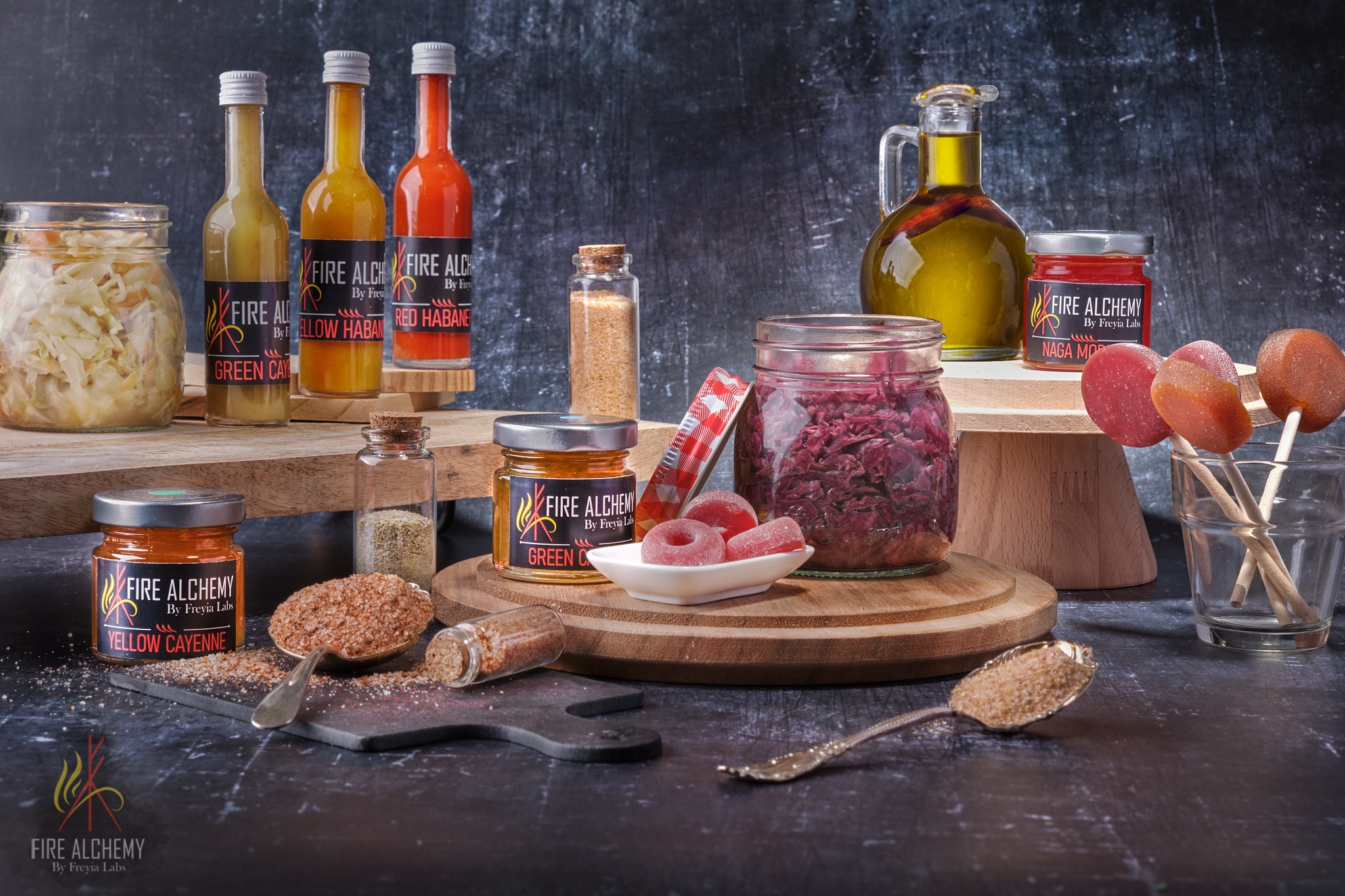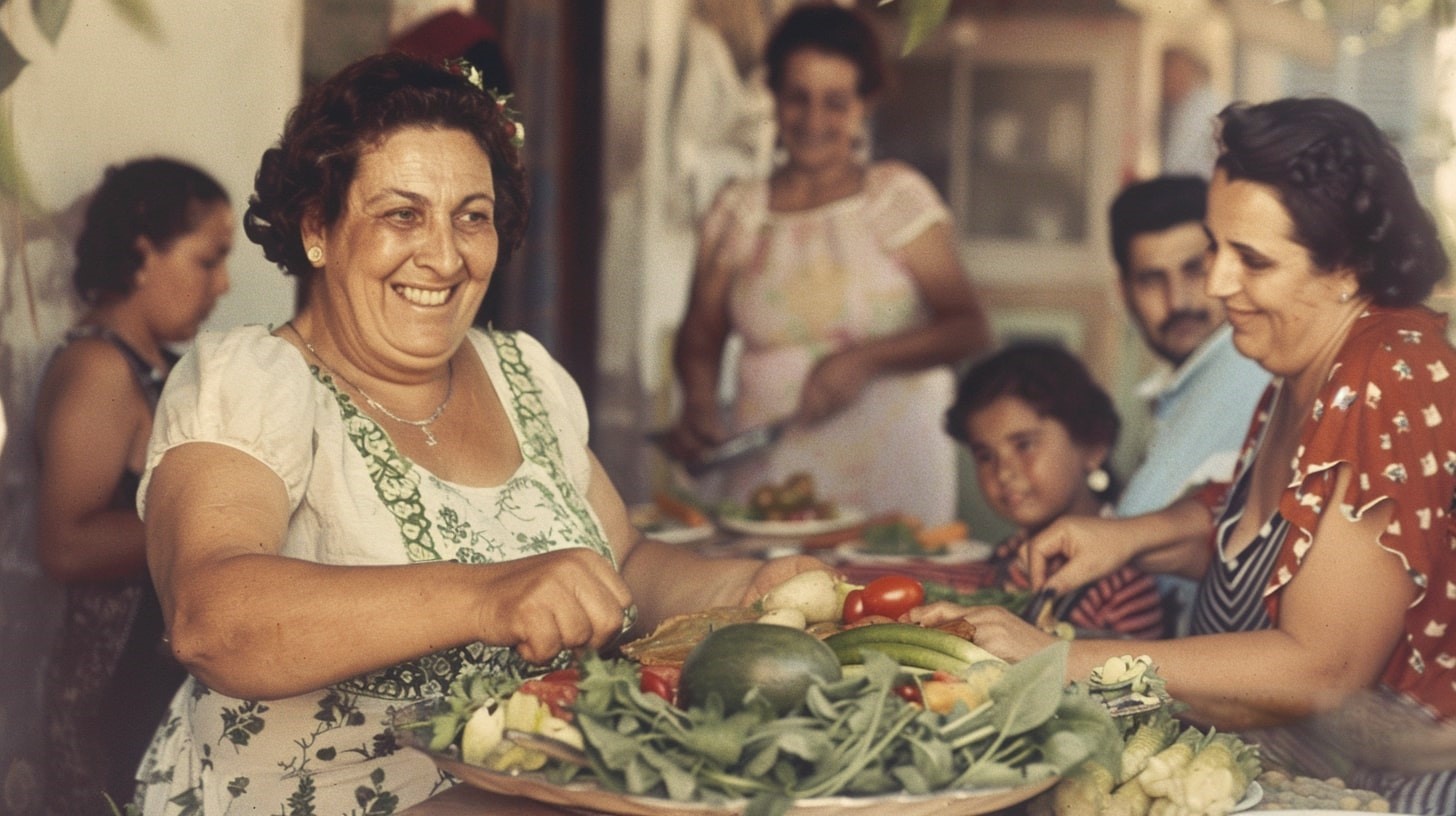As Cyprus’ levels of obesity and disease soar, Alix Norman discovers that the secret to staying healthy, slim, and sane may be in our past
Do you remember the food yiayia used to make? Fasolia, koupepia, pourgouri, lentils and rice. Tiropita and spanakopita.
In the summer, we ate village salads: rough cut cucumbers, tomatoes, and peppers drenched in olive oil. And when the weather turned cool, we warmed up with avgolemoni, trachanas, keftedes; with moussaka and stifado and yemista.
The dishes were nutritious, wholesome, handmade with love – exactly what springs to mind when we think of the Mediterranean diet. And for the most part, they used fresh ingredients. But there’s also a whole other aspect to our traditional diet that we often overlook: fermentation.
“We forget that everything from olives to yogurt, cheese, pickled vegetables, and kefir are all a staple of the Mediterranean diet,” says Vas Joseph. “And all of these undergo some sort of fermentation process.
“Originally, this was a way to preserve and extend the shelf life of foods. But the process also enhances nutritional value: improving everything from digestion to the immune system, boosting health by increasing the availability of beneficial bacteria, vitamins and enzymes.”
Today’s fermentation is a little different from that of the past. But the benefits are still legion – even more, in fact, when you factor in cutting-edge processes.
And that’s exactly what Vas and his partner Greta are doing: under the name Freyia Labs, they’re combining traditional dietary wisdom with precision fermentation in their range of plant-based, fermented products.
“If you look at the original foods of Cyprus, the dishes your grandma made, they’re all about nutrition,” says Vas. “It’s why the Mediterranean diet is lauded worldwide as incredibly healthful.
“At Freyia Labs, we’re focusing on reintroducing these authentic, wholesome foods back into our diets: not only preserving our culinary heritage, but providing modern consumers with the health benefits that come from a diet rich in fermented products. Because it’s clear that Cyprus has stopped eating the right way…”
Vas is right. Cyprus’ diet has changed a great deal in the last few decades.
As early as 2003, the Data Food Networking study was suggesting “a departure of the population from the traditional Mediterranean diet”, and “a westernisation of the country’s dietary habits.”
The report cited sugar as the main culprit, along with a decrease in the consumption of fruit and vegetables. We’re eating out more, it said, and we’re plumping for unhealthy meals. In the previous decade, it noted that sugar intake had rocketed (almost doubling among those who were retired), while the consumption of vegetables and fruit had dropped. Forty four per cent of men and 29 per cent of women were overweight, while 27 per cent of men and 18 per cent of women were classified as obese.
Today, the picture is even worse. In March, the Cyprus Mail ran an article based on data from the Cyprus Association of Dietitians and Nutritionists. And boy, are they worried about what we’re eating!

“Obesity, both as a disease and a causative factor, significantly impacts the overall burden of disease,” the association states, referencing type two diabetes, dyslipidaemia, cardiovascular diseases, cancer, musculoskeletal problems and even mental health problems such as depression.
In 2024, 47 per cent of men, and 26 per cent of women in Cyprus are considered overweight, while 29 per cent of men and 27 per cent of women are obese. And a staggering 49 per cent of children on the island are now classed as obese – one of the highest rates in the EU!
“Our modern diet has wrecked our health,” says Greta, who’s currently studying food fermentation with Harvard. “According to global market intelligence agency Mintel, 70 per cent of the global population suffers from compromised gut health. Given that nearly 80 per cent of your immune system rests in your gut, this is a huge problem!”
But it’s not just your immune system, she adds. “The gut houses trillions of bacteria that aid digestion, nutrient absorption, and immune function. A healthy gut microbiome helps regulate metabolism, reduces inflammation and can influence mental health by producing neurotransmitters like serotonin.
“Our grandmothers probably didn’t know what microorganisms were,” she acknowledges. “But they knew the benefits of the food they were giving us.
“They knew instinctively that too much of the wrong foods was a bad thing. They may not have been able to name the associated digestive issues, immune problems, and chronic conditions such as obesity, diabetes and even mental health disorders, but they knew!”
Together, Greta and Vas are remedying this modern dietary lack: producing fermented foods that are packed with fibre, prebiotics and probiotics to balance out the gut microbiome, regulate metabolism, improve nutrient absorption and reduce sugar cravings, as well as acting as anti-inflammatory agents within the body and brain.
Launched in 2019, the duo’s first products – a range of probiotic-rich chilli preserves and sauces under the name Fire Alchemy – took the island by storm. But in the last five years, they’ve vastly expanded their range to offer fermented vegetables that are tremendously beneficial to the diet.
White onion, red onion, cucumbers, tomatoes, carrots, kimchi, radishes, and various types of sauerkraut are all on the menu – all made with fresh, local produce that’s fermented with state-of-the-art technology. And all are designed to maximise your health.
“Like much of the Mediterranean diet, fermented foods are key to reducing chronic inflammation,” Vas continues. “And though you’re not going to lose 10 kilos or cure your diabetes overnight with a spoonful of kimchi, incorporating these products into your diet certainly adds considerable health benefits.
“If you look at the state of the island’s health nowadays, there’s a lot to be desired. Is it any wonder there’s a pharmacy on every corner? But if you eat well, eat right; if you eat the way your grandparents did, with plenty of fresh foods and a good amount of fermented products – well, then you don’t need supplements.
“In Cyprus,” he concludes, “nobody should have to spend half their salary on packs of vitamins, minerals and probiotics just to stay healthy or slim or sane! Everything you need is in your food – if you just eat the right things. This is what our yiayias knew.”






Click here to change your cookie preferences